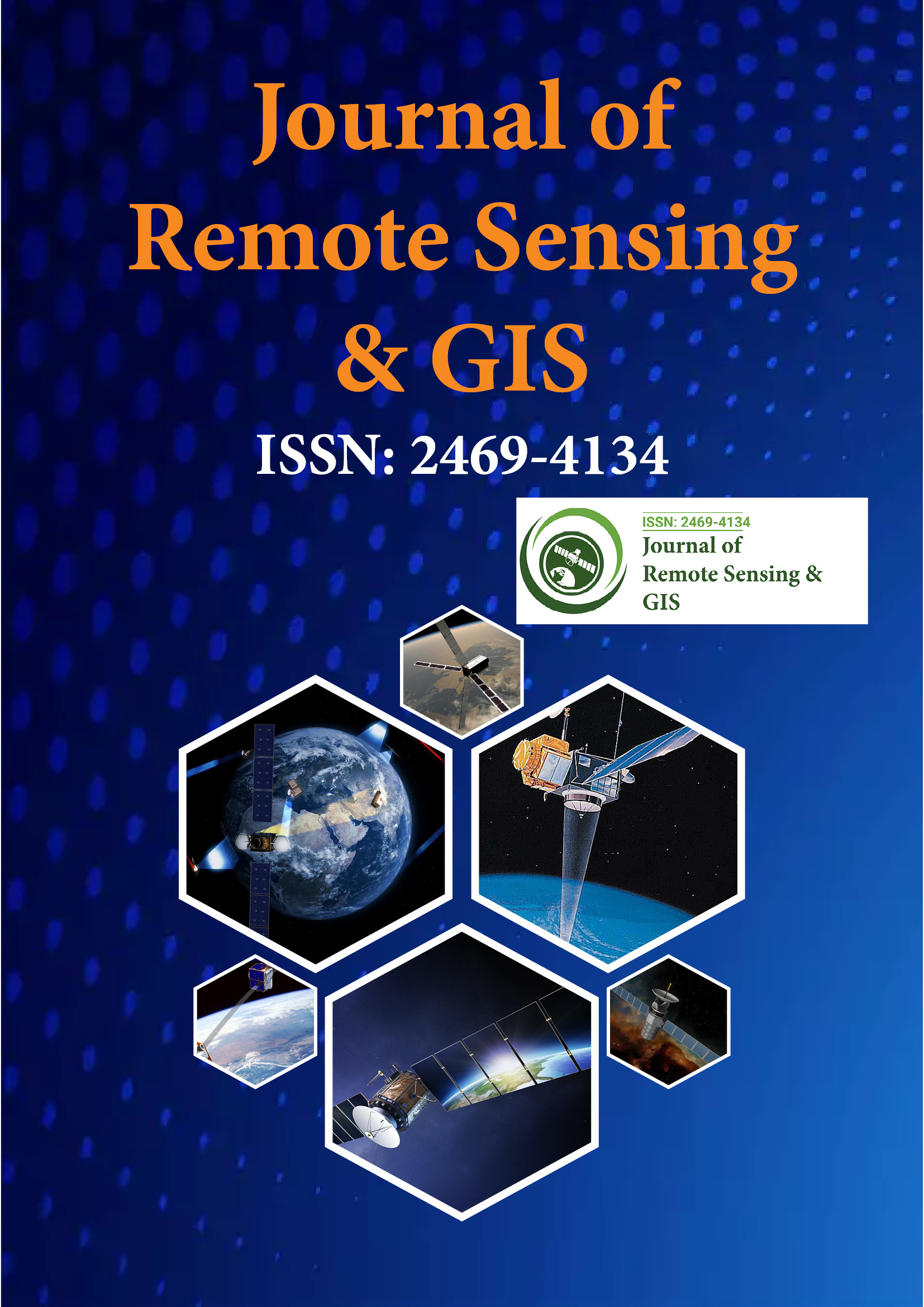குறியிடப்பட்டது
- ஜெ கேட் திறக்கவும்
- RefSeek
- ஹம்டார்ட் பல்கலைக்கழகம்
- EBSCO AZ
- OCLC- WorldCat
- பப்ளான்கள்
- சர்வதேச அறிவியல் அட்டவணைப்படுத்தல்
- யூரோ பப்
- கூகுள் ஸ்காலர்
பயனுள்ள இணைப்புகள்
இந்தப் பக்கத்தைப் பகிரவும்
ஜர்னல் ஃப்ளையர்

அணுகல் இதழ்களைத் திறக்கவும்
- உணவு மற்றும் ஊட்டச்சத்து
- உயிர்வேதியியல்
- கால்நடை அறிவியல்
- சுற்றுச்சூழல் அறிவியல்
- நரம்பியல் & உளவியல்
- நர்சிங் & ஹெல்த் கேர்
- நோயெதிர்ப்பு மற்றும் நுண்ணுயிரியல்
- பயோ இன்ஃபர்மேடிக்ஸ் & சிஸ்டம்ஸ் பயாலஜி
- பொது அறிவியல்
- பொருள் அறிவியல்
- பொறியியல்
- மரபியல் & மூலக்கூறு உயிரியல்
- மருத்துவ அறிவியல்
- மருத்துவ அறிவியல்
- மருந்து அறிவியல்
- வணிக மேலாண்மை
- விவசாயம் மற்றும் மீன் வளர்ப்பு
- வேதியியல்
சுருக்கம்
எத்தியோப்பியாவின் மத்திய பிளவு பள்ளத்தாக்கில் புவியியல் தொழில்நுட்பங்கள் அடிப்படையிலான நில பயன்பாடு மற்றும் நில கவர் இயக்கவியல் தன்மை
Esubalew Nebebe, Shimeles Damene, Ephrem Gebremariam
உலகளாவிய சுற்றுச்சூழல் மாற்றத்தில், குறிப்பாக வளரும் நாடுகளில் நில பயன்பாட்டு நிலப்பரப்பு மாற்றம் ஒரு முக்கிய பிரச்சினையாகும். எத்தியோப்பியா துணை-சஹாரா ஆப்பிரிக்க நாடுகளில் ஒன்றாகும், அங்கு இதுபோன்ற நடைமுறைகள் சுற்றுச்சூழல் ஆரோக்கியத்தை சமரசம் செய்யும் மிகவும் பொதுவானவை. குறிப்பாக, எத்தியோப்பியாவின் மத்திய பிளவு பள்ளத்தாக்கில், கடந்த பத்தாண்டுகளில் நில பயன்பாட்டு நிலப்பரப்பில் முன்னோடியில்லாத மாற்றம் ஏற்பட்டுள்ளது. எத்தியோப்பியாவின் மத்திய பிளவுப் பள்ளத்தாக்கு, ஜீவே துக்டா மற்றும் டோடோடா மாவட்டங்களில் நிலப் பயன்பாடு மற்றும் நிலப்பரப்பு இயக்கவியலை பகுப்பாய்வு செய்வதை இந்த ஆய்வு நோக்கமாகக் கொண்டுள்ளது. 1984, 1995 மற்றும் 2013 ஆம் ஆண்டிற்கான மல்டிஸ்பெக்ட்ரல் ஸ்கேனர் சிஸ்டம் (எம்எஸ்எஸ்), தீமேடிக் மேப்பர் (டிஎம்) மற்றும் மேம்படுத்தப்பட்ட தீமேடிக் மேப்பர் (ஈடிஎம்+) ஆகியவற்றின் மூன்று தசாப்த கால (1984- 2013) தரவுத்தொகுப்புகளை பகுப்பாய்வு உள்ளடக்கியது. தரவுத்தளங்கள் யுனைடெட் ஸ்டேட்ஸ் புவியியல் ஆய்வு (USGS), பூமி கண்காணிப்பு வள அறிவியல் மையம் (EROS) ஆகியவற்றிலிருந்து http://glovis.usgs.gov/ மற்றும் எத்தியோப்பியன் புவியியல் தகவல் நிறுவனம் ஆகியவற்றிலிருந்து இலவசமாகப் பெறப்பட்டன. புவியியல் தகவல் அமைப்பு (ஜிஐஎஸ்) மற்றும் ரிமோட் சென்சிங் (ஆர்எஸ்) தொழில்நுட்பங்கள் ஆய்வுக் காலத்தில் நிலப் பயன்பாட்டு நிலப்பரப்பின் (எல்யுஎல்சி) இயக்கவியலின் அளவு மற்றும் போக்கை பகுப்பாய்வு செய்ய படங்களை வகைப்படுத்த பயன்படுத்தப்பட்டன. ஒரு பொருள் சார்ந்த மேற்பார்வையிடப்பட்ட வகைப்பாடு முறை மற்றும் வகைப்படுத்தலுக்குப் பிந்தைய மாற்றம் கண்டறிதல் நுட்பம் ஆகியவை மாற்றங்களை ஒரு திட்டவட்டமான நிலப் பயன்பாட்டு நிலப்பரப்பு வகுப்பாக வகைப்படுத்த பயன்படுத்தப்பட்டன. பகுப்பாய்வு ஆறு LULC வகைகளை வெளிப்படுத்தியது, அங்கு விளைநிலங்கள் மற்றும் கட்டப்பட்ட பகுதிகள் வெற்று நிலங்கள் மற்றும் வனப்பகுதிகளின் செலவில் தொடர்ச்சியான முற்போக்கான விரிவாக்கத்தைக் காட்டியுள்ளன. 1984 இல் விளைநிலங்கள் மற்றும் கட்டமைக்கப்பட்ட பகுதிகள் 33.3% மற்றும் 2.6% இல் இருந்து 40.6% மற்றும் 8.2% ஆக 2013 இல் விரிவடைந்தன, அதே சமயம் 1984 இல் வனப்பகுதிகள் மற்றும் வெற்று நிலங்களின் பரப்பளவு 11.7%, 17.7% இலிருந்து 4.2% மற்றும் 10.2% ஆக குறைந்தது. . ஒப்பீட்டளவில், 1984 முதல் 2013 வரை புதர் நிலங்கள் மற்றும் நீர்நிலைகள் 1.9% மற்றும் 0.2% ஆல் சிறிதளவு அதிகரிக்கப்பட்டன. சுருக்கமாக, ஆய்வுப் பகுதியில் ஆய்வுக் காலத்தில் கணிசமான நிலப் பயன்பாட்டு நிலப்பரப்பு மாற்றம் ஏற்பட்டிருப்பதை ஆய்வு உணர்ந்தது. .